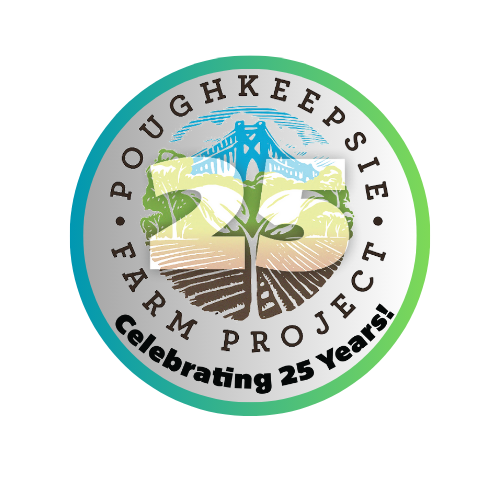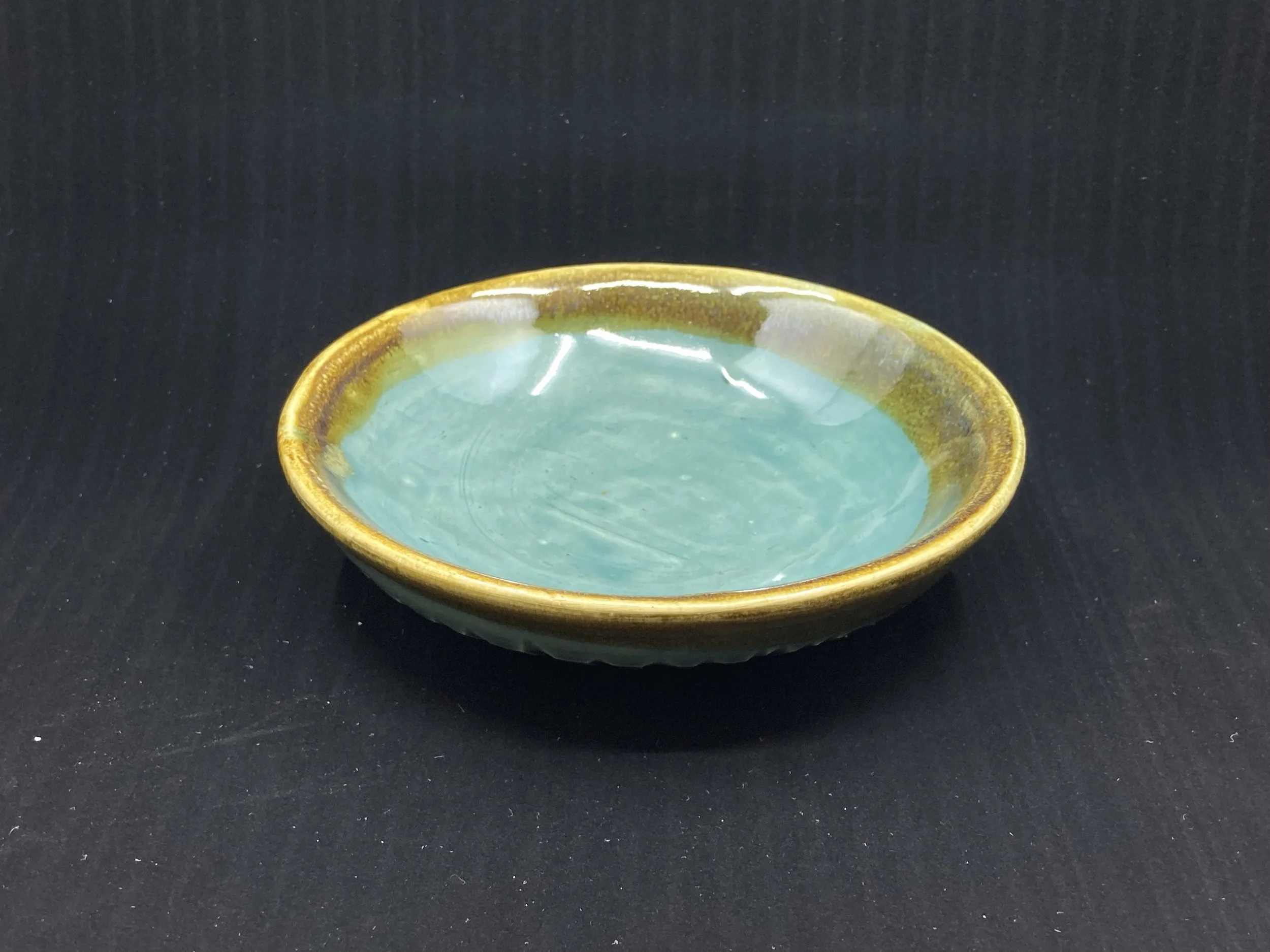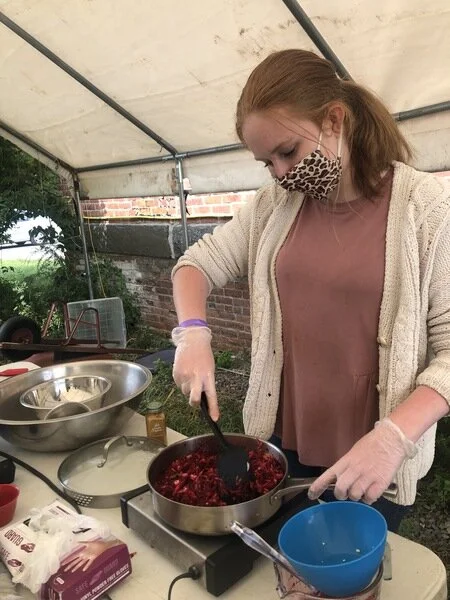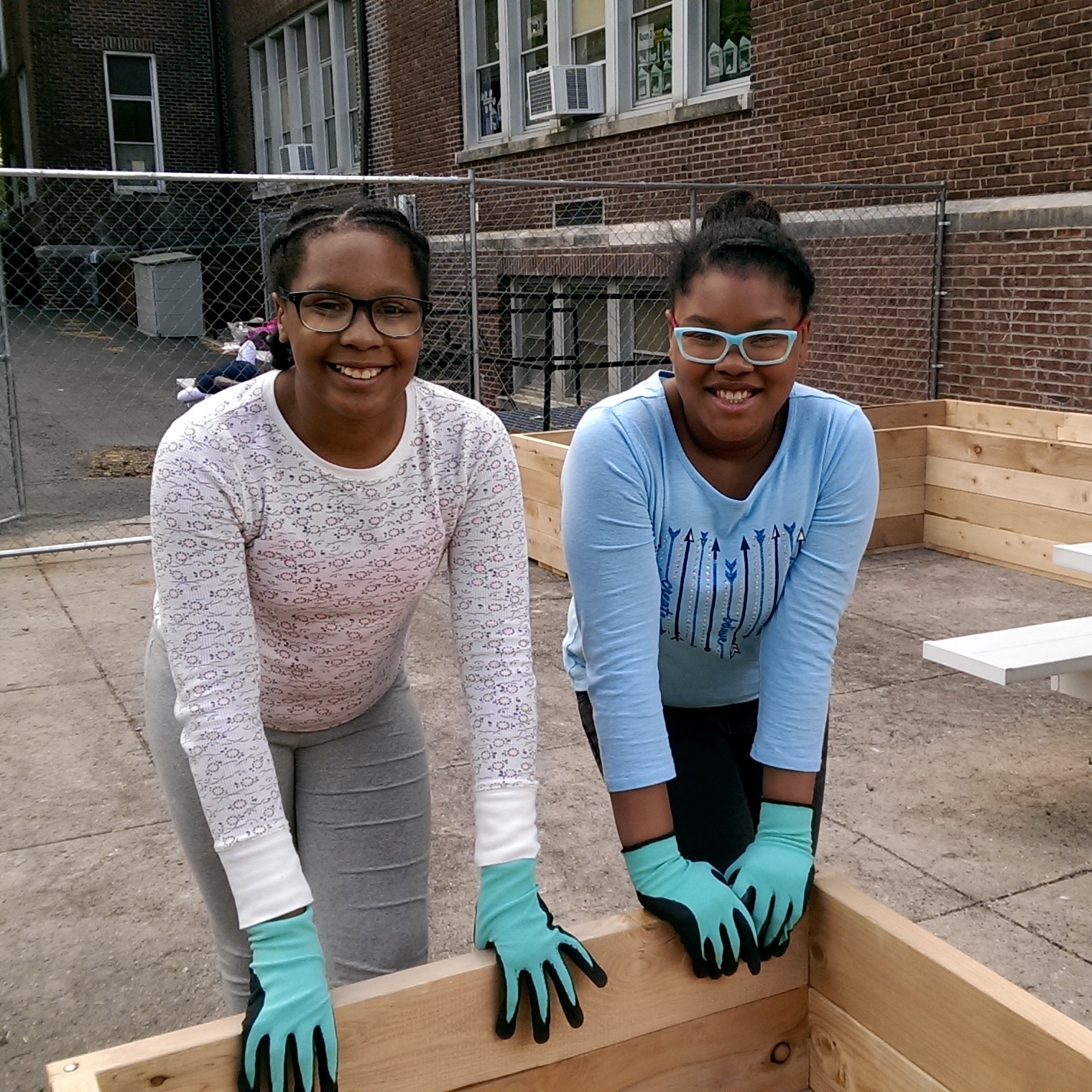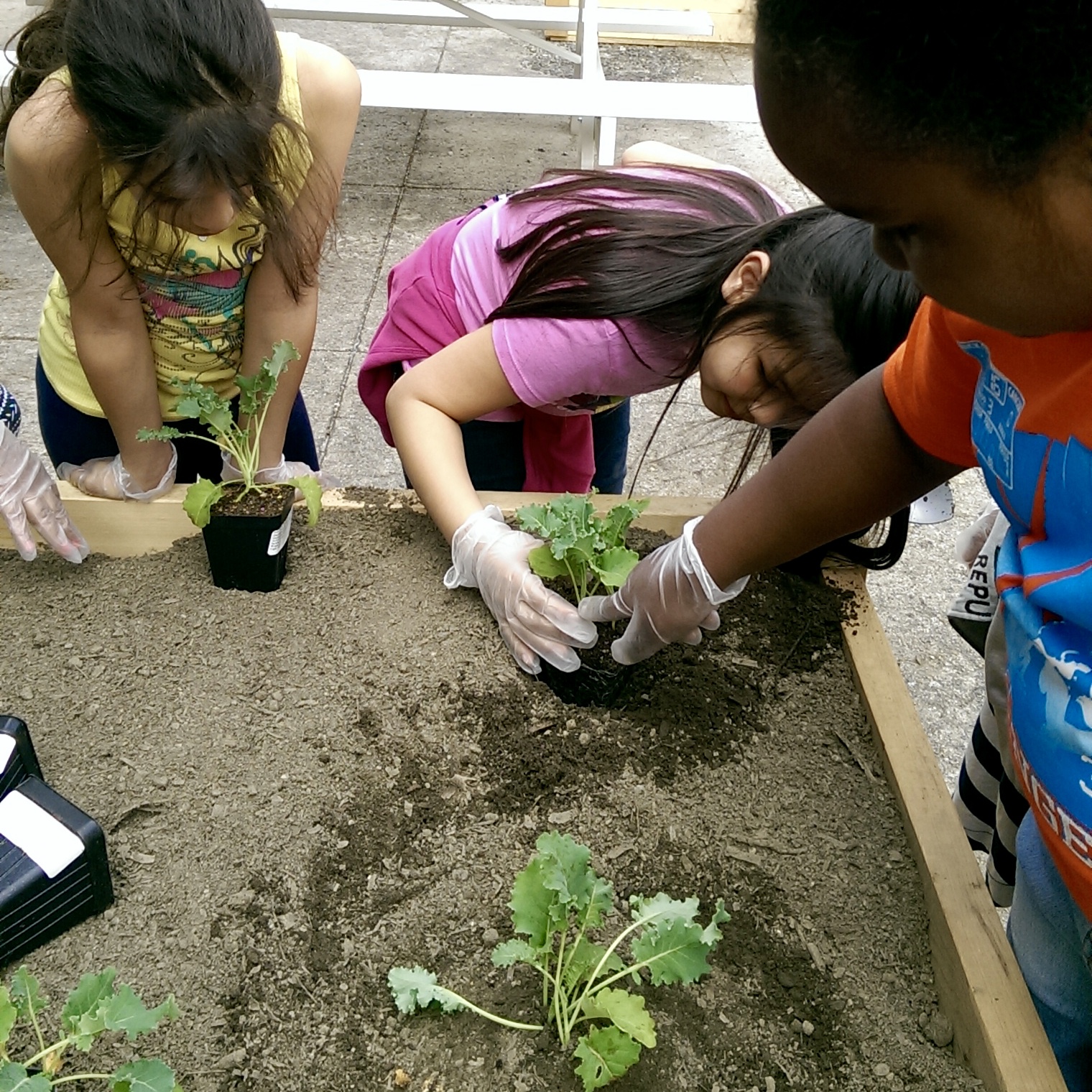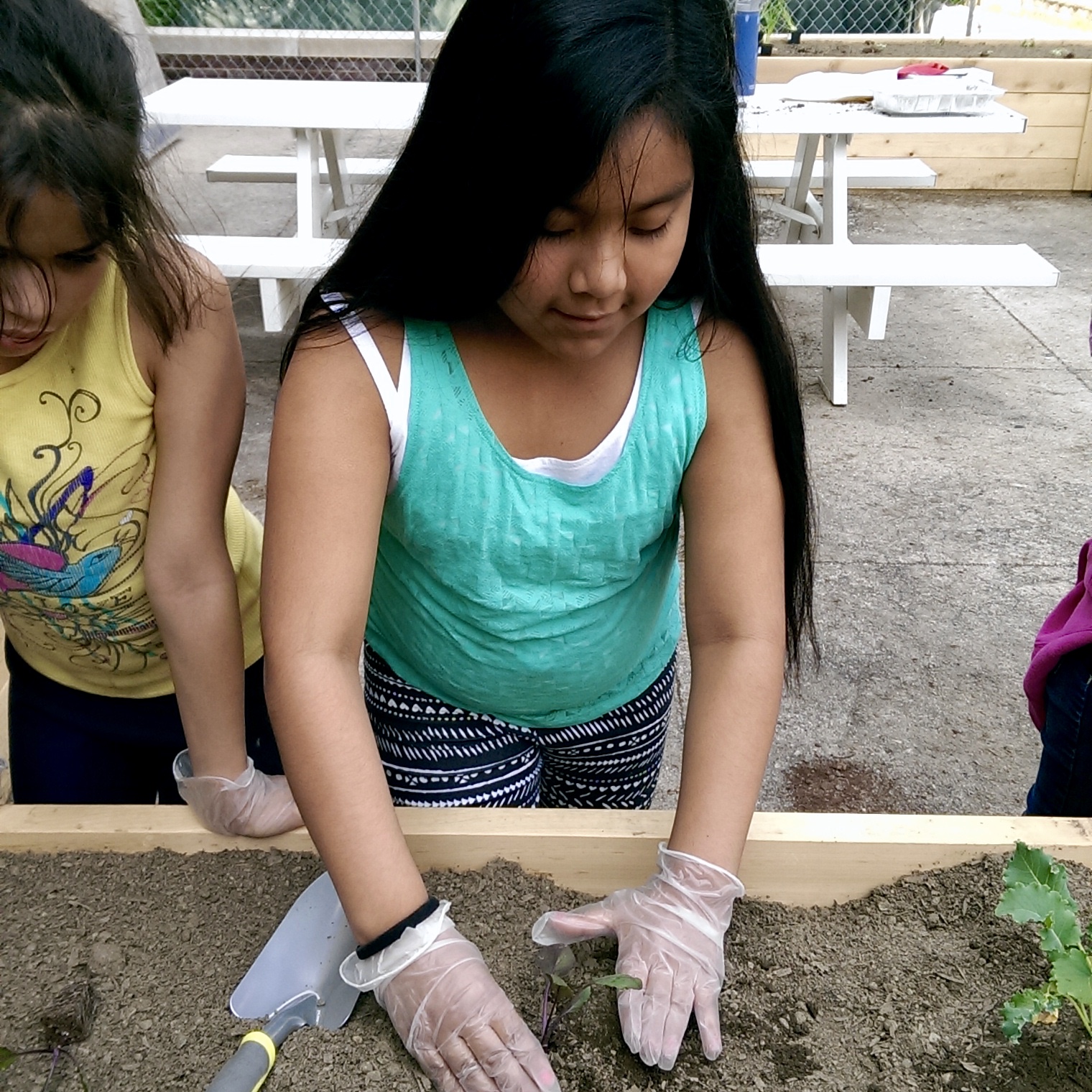Written by Chris Gavin, Educator and After-School and Summer Program Coordinator
Youth intern and staff members preparing freshly harvested produce for donation
It would be an understatement to say 2020 has been a year like no other for Poughkeepsie Farm Project and how we offer educational opportunities to our community. Our world turned upside down in mid-March with the closure of schools in New York State, and all of our usual educational programs were abruptly halted. Since then, our team has been navigating the new realities of the COVID-19 pandemic and our country’s long-needed reckoning with systemic racism. The sudden upheaval to our work has given us a moment to pause and reflect on what we can do to better embody our mission of creating a just and sustainable food system in Poughkeepsie. Our education team has been digging into this important work with a sense of passion and joy to match the challenges of this unprecedented moment. While the structure and implementation of our programs has changed, the core goals of our work remain strong and in clear focus: making fresh vegetables and the means to prepare them at home accessible to our community AND engaging families in the important act of growing, preparing and eating healthy, nourishing, locally-grown foods.
Distance Learning
Poughkeepsie Food Power @Home, our new distance learning initiative, was born from our desire to stay connected with Poughkeepsie youth while in-person teaching isn’t possible. Our program consists of educational videosalong with cooking and gardening kits so families can complete the activities at home. We are aiming to provide families with a substantial amount of food to meet the growing food insecurity in our community, to give families engaging food-based projects to do at home, and to help families gain the confidence to grow and cook healthy foods. To date, we have provided 13 weeks of videos and activity kits to a total of 185 households. Some of our favorite projects have been growing microgreens at home, a container gardening project to meet the space availability of all participants, meal kits featuring recipes from around the world, and videos in English and Spanish to make our program more accessible to our community. In order to support our families during the start of the new school year, we also distributed over 300 educational supply kits and books to our participants.
PFP@Home participants proudly displaying their homemade kale quesadilla
Food Access
In response to the growing food insecurity in our community, our education team developed a food distribution program to get food into the hands of youth and families in the city of Poughkeepsie. Working in conjunction with the Poughkeepsie City School District’s Food Service Department, we have been distributing free produce from our farm at five free school meal sites every week since mid-March. In addition to providing fresh, healthy, locally-grown produce, we also give families printed recipes and storage tips to help people feel confident in preparing the food. One of the most powerful things about this food distribution model has been building strong connections with individuals and families, and we are proud to provide people with an experience that feels welcoming and positive in the face of the growing challenge of food insecurity. We believe that access to fresh healthy food is a right for everyone in our community, and distributing free produce in a dignified way is one step we are taking towards this goal.
Happy resident at a free produce distribution site
Community Harvest
Community Harvest Days at the farm are rooted in the ancient practice of gleaning, in which farmers would leave a certain amount of crops in the field and welcome community members to take what they needed. This serves the multiple purposes of cutting down on the waste stream in the local food system, gets food directly into the hands of people who need it, and connects people to the land and farming in a powerful community-oriented way. We’ve hosted 5 community events and harvested over 3,000 lbs of food for families to take home and to donate through partner organizations and school meal sites. Community Harvest Days have been a way for PFP to strengthen our commitment to food justice as we work to make our farm a place that feels welcoming to all and a resource for all in the community. In an effort to make these events more inclusive, we’ve incorporated live interpretation for Spanish-speaking participants, an indigenous land acknowledgement to recognize the original inhabitants of this land we farm, and opening the invitation to City of Poughkeepsie residents who participate in our after school programs and distance learning initiatives.
Community members gleaning peppers during a Community Harvest Day
Internship Programs
While nearly all in-person education was halted at the farm, we were able to provide a ten-week paid summer internship for six Poughkeepsie teens. The Green Jobs crew was involved in every aspect of growing, harvesting, and distributing produce in the community - working both in the farm fields and our educational gardens. In addition to this hands-on training, the teens also gained knowledge about food access in their own community as they acted as youth ambassadors during community harvest events and free produce distributions. This program also highlighted the links between food justice and racial justice as youth explored the historical roots of racial injustices embedded in our nation’s food system. The final project for the internship was creating an Anti-Racist Timeline and inviting all in the PFP community to consider how they are and can work towards being anti-racist advocates in their daily lives.
Braiding popcorn from the seed saving garden
We were also able to engage college students in new ways through both in person and remote internships. Our remote interns, a Vassar Community Fellow and a Shepherd Consortium intern, completed online projects to strengthen PFP’s virtual educational resources. Our new Food Share Story Map uses ArcGIS to explore how our Food Share Program is addressing food insecurity and growing community through sharing our harvest. Both also contributed to our Harvest of the Month Resource Hub which brings recipes, lessons, and engaging activities online for families and educators to learn remotely. Our on-site interns from the Culinary Institute of America and University of Vermont made valuable contributions to PFP through their work on recipe development, seed saving, weekly food distribution, and working in the gardens and farm fields to harvest vegetables and medicinal herbs.
Recipe testing
The Work to Come:
As this incredibly trying year comes to a close, we reflect as an organization on how we have met and continue to meet the challenges of 2020 - but there is much work still to be done. As an educator here at PFP, I can attest to the fierce joy and love that my team members bring to this work as we dig into our mission of building a just food system for all in our community. While the pandemic has highlighted so many challenges and injustices in our world, it has also brought people together in strength and solidarity. As a community, we must work together to ensure that everyone — regardless of their address, age, gender, or race — has access to fresh, healthy, affordable food. Let’s join together as a whole PFP community as we support each other on this journey towards accountability and equity - and of course delicious nourishing food. In closing, here are some personal statements from our education team on how we would like to strengthen our food justice efforts in the upcoming year.
"My hope is that this is a year of making good on our mission at PFP." - SonyaJoy
“Bringing people from the community into the Poughkeepsie Farm Project space is definitely something I want to do more of. Because it's just down the street from the community and it’s just not something people recognize as theirs, but it really is.” - Larissa
“Getting to be a part of neighbors coming together to share their love for growing and cooking delicious veggies! Continuing to listen and learn and bring ancestral wisdom and delicious recipes from Poughkeepsie families into our school and farm programs.” - Kathryn
“I want to continually expand what food justice looks like at PFP. And I want to help make PFP a safe and brave space where we can have needed conversations about racial justice in Poughkeepsie.”- Chris
“In 2021, I dream of creating a path to year-round jobs for youth in Poughkeepsie, and empowering our youth to see the connections between food justice, climate justice, and racial justice! All while planting seeds of language justice in our community so those who don’t speak the dominant language can begin to see the beauty in our bounty.” - Laura
“I am looking forward to strengthening our work at the intersections of food justice, racial justice, environmental justice, and language justice while taking leadership from our beautiful Poughkeepsie community.” -Jamie
